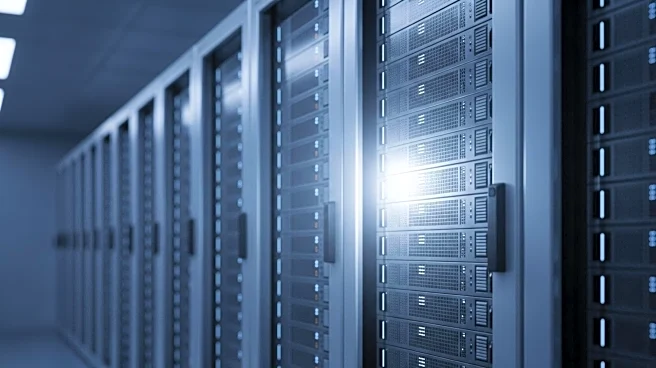What's Happening?
The xAI Supercluster, an artificial intelligence data center owned by Elon Musk, began operations in southwest Memphis, Tennessee, on September 1, 2024. The facility is powered by natural gas turbines, which started functioning before the company secured the necessary air pollution permits. Concerns were raised by environmental health researchers at the University of Memphis regarding the potential for increased air pollution in an area already burdened by industrial emissions. The combustion from these turbines releases various pollutants, including nitrogen dioxide and sulfur dioxide, which are linked to serious health issues. However, an analysis conducted by the researchers found that the data center's operations have not significantly worsened air quality in the surrounding neighborhoods. The study utilized a combination of satellite data, ground monitors, and computer modeling to assess pollution levels before and after the data center's opening.
Why It's Important?
The findings are significant as they address community concerns about potential health risks from increased pollution. Southwest Memphis, predominantly inhabited by low-income Black residents, has long faced challenges with industrial pollution. The study's results suggest that the xAI data center's emissions are minimal, providing some reassurance to local residents. However, the research also highlights the ongoing issue of fine particulate matter pollution in the area, which remains above national limits. This situation underscores the need for continuous monitoring and regulatory oversight to protect public health. The study also emphasizes the importance of scientific engagement in communities disproportionately affected by industrial activities, aiming to mitigate environmental health challenges.
What's Next?
Future steps could involve implementing sustained, community-based air quality monitoring to provide more comprehensive data on pollution levels and their health impacts. Such efforts would require collaboration between regulatory agencies, public health groups, and the local community. Additionally, any changes in the data center's equipment or operations could alter its emissions profile, necessitating ongoing scrutiny. The study advocates for increased regulatory attention to ensure that industrial developments do not exacerbate existing environmental health issues in vulnerable communities.
Beyond the Headlines
The situation in southwest Memphis reflects broader environmental justice concerns, where marginalized communities often bear the brunt of industrial pollution. The study's findings could influence policy discussions on air quality standards and the need for equitable environmental protections. It also raises questions about the responsibilities of tech companies in mitigating their environmental impact, particularly in areas already facing significant pollution challenges.











